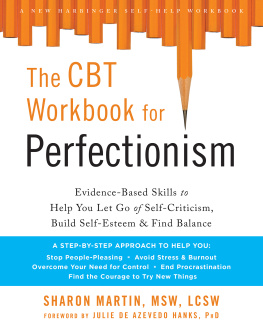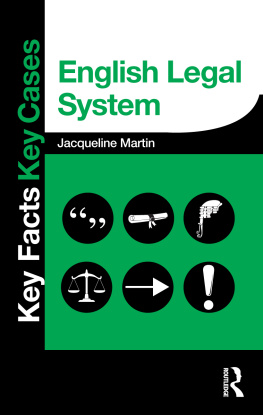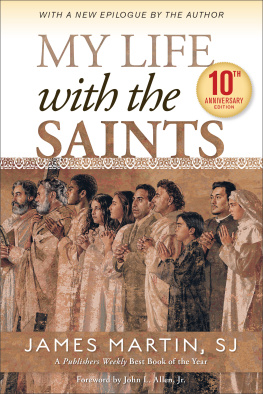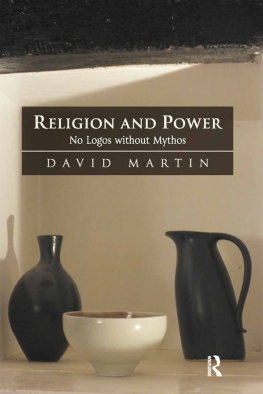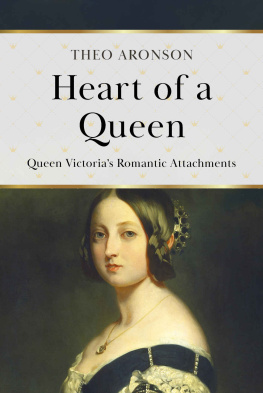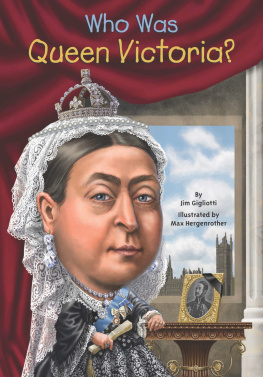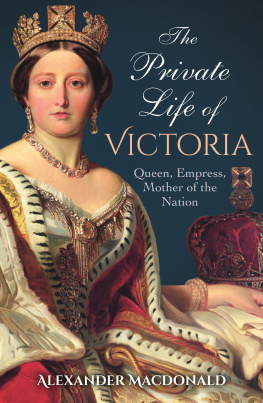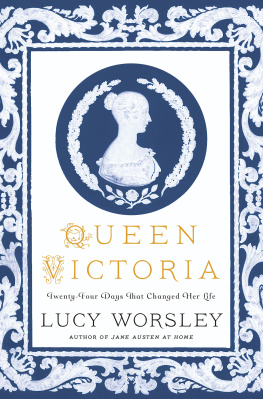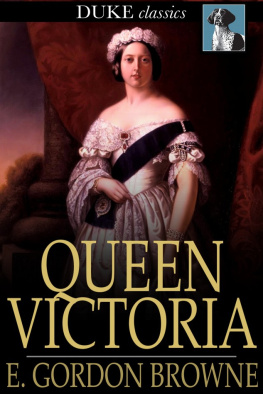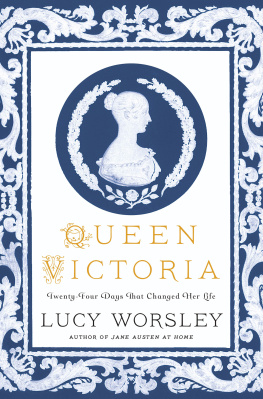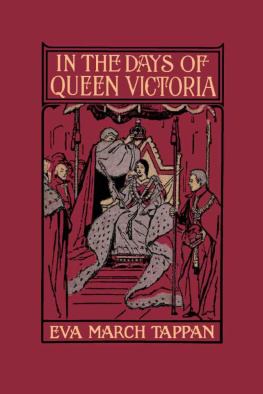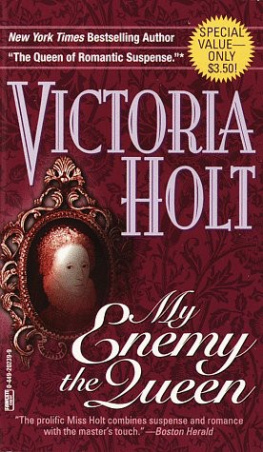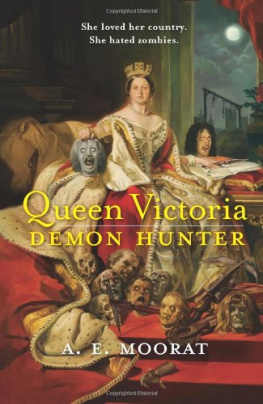QUEEN VICTORIA
QUEEN VICTORIA
AS I KNEW HER
BY
SIR THEODORE MARTIN
K.C.B., K.C.V.O.
For Private Circulation
WILLIAM BLACKWOOD AND SONS
EDINBURGH AND LONDON
MCMI
All Rights reserved
STIFLE the throbbing of this haunting pain,
And dash this tearful sorrow from the eyes!
She is not dead! Though summoned to the skies,
Still in our hearts she lives, and there will reign;
Still the dear memory will the power retain
To teach us where our foremost duty lies,
Truth, justice, honour, simple worth to prize,
And what our best have been to be again.
She hath gone hence, to meet the great, the good,
The loved ones, yearn'd for through long toilsome years,
To share with them the blest beatitude,
Where care is not, nor strife, nor wasting fears,
Nor cureless ills, nor wrongs to be withstood;
Shall thought of this not dry our blinding tears? |
Published in the 'Nineteenth Century,' February 1901.
QUEEN VICTORIA
AS I KNEW HER.
CHAPTER I.
My personal introduction to Queen Victoria was due to the circumstance of my being chosen by Her Majesty to be the biographer of the Prince Consort. The obvious difficulties of that task, to which I looked forward with grave apprehension, could not have been successfully overcome but for the personal confidence early reposed in me by the Queen, which led not only to her placing unreservedly at my disposal the very complete collections made by the Prince Consort of confidential State and other papers connected with Her Majesty's reign, but also to the frank communication of such personal details as, while they illustrated the character of the Prince, threw the strongest light upon that of the Queen herself.
After my book was completed, the same confidential relations continued. This gave me such unusual opportunity of observing Her Majesty's qualities of mind and heart, that I am tempted to place on record so much of what I saw as may without impropriety be told. What she was as a Sovereign will be for historians to tell; it is only of the woman as she became revealed to me that I would speak, using, where I may, her own words, as I find them in looking back upon the very voluminous correspondence with which I was honoured through many years. The endearing qualities of the Queen have been acknowledged by all who knew her. They secured for her what might be truly called the affectionate devotion of the men and women of her Court. I belonged to the outer world, but by no one were these qualities more warmly felt than by myself; for to the end, when the work which first brought me into contact with Her Majesty had long been completed, her gracious kindness and trust were vouchsafed to me with a constancy that knew no shade of change.
"How came you to be chosen to write the Life of the Prince Consort?" is a question I have often been asked. It is a question which, in the early days, I often asked myself, for the selection came upon me as a great surprise. I did not know the Prince Consort, but I had heard much of him through my friend Mr (afterwards Sir Arthur) Helps, Clerk of Her Majesty's Council, and had been consulted by him in his preparation of the Collection of the Prince's Speeches and Addresses, and of the admirable monograph with which he introduced them, in the volume published by Murray in 1862. He must have laid more stress on my assistance than it merited. The Queen, to whom I was an entire stranger, presented me with an inscribed copy of the book dated 20th December 1862. It came with a letter from Lady Augusta Bruce (afterwards Stanley), one of the Queen's ladies, in which she says she had been commanded to forward it to me, "in remembrance of my co-operation in the work of giving these precious memorials to our country and to the world, and as a token of Her Majesty's true appreciation of the spirit in which that co-operation was afforded." Lady Augusta was an old and valued friend of my wife, and she, as well as Sir Arthur Helps, may have spoken of me to the Queen; but I was quite unprepared for such a recognition of suggestions which in no way merited, to my thinking, the name of co-operation. From this time onwards I heard much both of the Queen and Prince from my friend Helps, and my opinion was often asked in connection with Her Majesty's Leaves from a Journal, which he was engaged in carrying through the press.
It had been intended that General Charles Grey, the Queen's Private Secretary, should write the Prince's Life, and a first volume was in course of being prepared, which dealt with the early years and marriage of the Prince. The General soon found that he had neither the leisure nor the strength to carry out the work, and I was aware that the question how this was to be done had closely occupied Her Majesty's thoughts. I was, however, taken greatly by surprise when a letter from Helps reached me in my holiday retreat in North Wales, in which he told me that the Queen had approved of a suggestion he had made, that I should be asked to undertake the task. With his letter he sent for my perusal, through Miss Alice Helps, who was then staying with us, a memorandum giving an outline of his ideas how the work should be carried out.
"It will be a very great thing to do," the memorandum said, "covering many of the most secret transactions of the reign. General Grey's book is merely the life of the Prince as a child, and up to his marriage. It now becomes part of the history of England, and also of foreign States. A special duty will be to judge what documents shall be published, taking it for granted that such a work cannot long be kept secret.... The more I see of the Prince's doings and sayings, the more I am struck with their largeness and extent." The memorandum goes on to offer assistance (which, as it turned out, I never used) in looking up and selecting materials and in furnishing political information, ending with the assurance, that "after seeing me, Her Majesty would be most confidential, and would trust everything to me. H. M. would much like Mr Martin to undertake the work, and he would find no difficulty in getting her to assent to any of his wishes in regard to it."
Reflection satisfied me that, as the event proved, Mr Helps had not fully appreciated either the greatness of the scale on which a biography, that would in fact be a history, must be constructed, or the amount of time and labour which it would demand. Much honoured as I felt by the proposal, I shrank from the task; and in the full sense of my own unfitness for it, and in the hope that it would not be further pressed upon me, I replied to Mr Helps as follows:
"27th August 1866.
" My dear Helps ,Alice has read to me your memorandum as to the proposed Life of the Prince Consort, and I have given the subject very anxious consideration. The work I conceive to be one which, while full of the greatest interest, is surrounded with the gravest responsibility. You do not very clearly indicate what precise shape the Life is intended to take. It is natural and proper that a Life of the Prince should be prepared, and given to the world, probably at no distant date, in which the real greatness of his character, public and private, and the breadth of his views should be developed, and developed by letting himself speak through the memoranda and other documents under his own hand, which, I presume, exist in abundance, wherever these can with propriety be used. But it is, of course, obvious that the matters to be dealt with involve so much that is delicate in their bearing both upon individual and public affairs, that to decide what should and what should not be given will involve most anxious consideration at every step; while it is scarcely less certain that much must either be altogether withheld, or set apart for a volume of



